You are here
New Releases
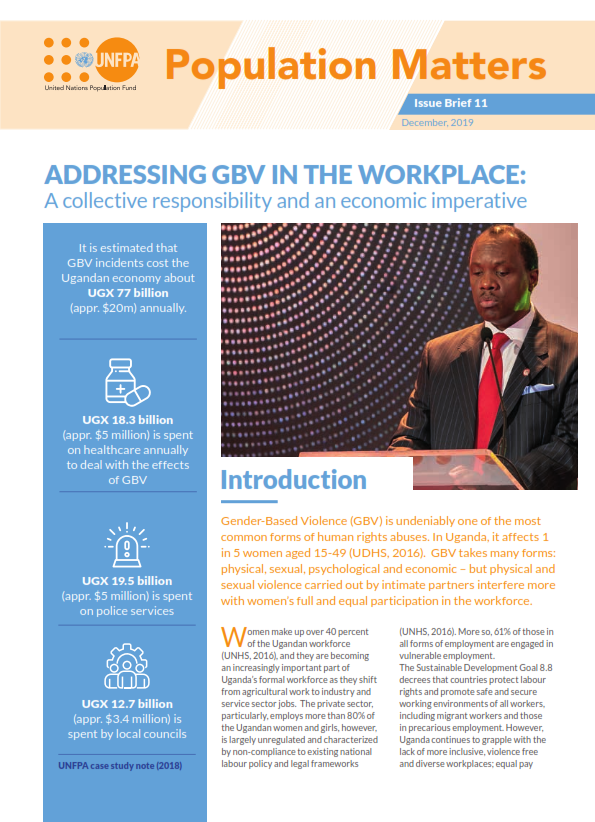
Addressing GBV in the Workplace: A Collective Responsibility and an Economic Imperative
Gender-Based Violence (GBV) is undeniably one of the most common forms of human rights abuses. In Uganda, it affects 1 in 5 women aged 15-49 (UDHS, 2016). GBV takes many forms: physical, sexual, psychological and economic – but physical and sexual violence carried out by intimate partners interfere more with women’s full and equal participation in the workforce.
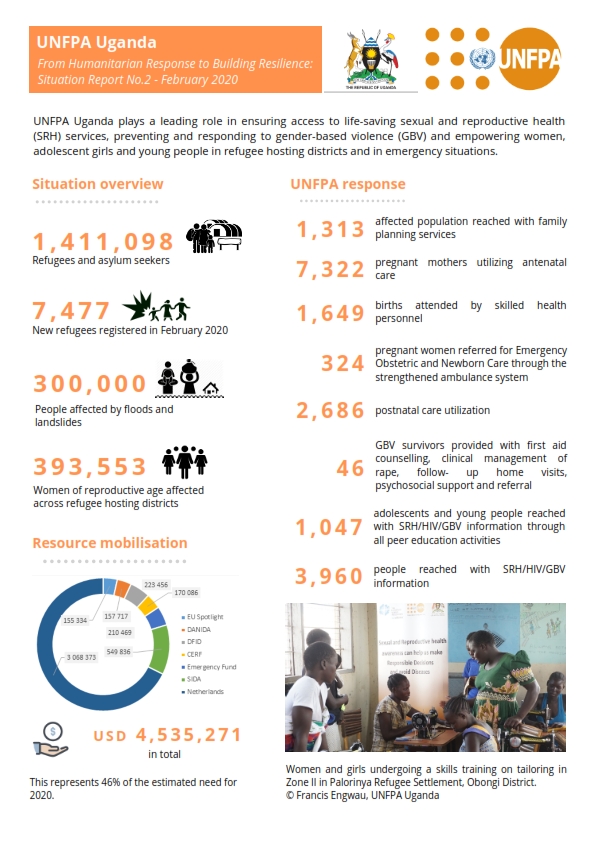
UNFPA Uganda Humanitarian Situation Report February 2020 Issue No. 2
With support from donors, UNFPA continued to play a leading role in ensuring access to lifesaving sexual and reproductive health and rights information and services as well as prevention of gender based violence and empowering women, adolescent girls and young people in refugee hosting districts and in emergency situations. This situation report is summary of UNFPA's humanitarian interventions in the month of February, 2020.
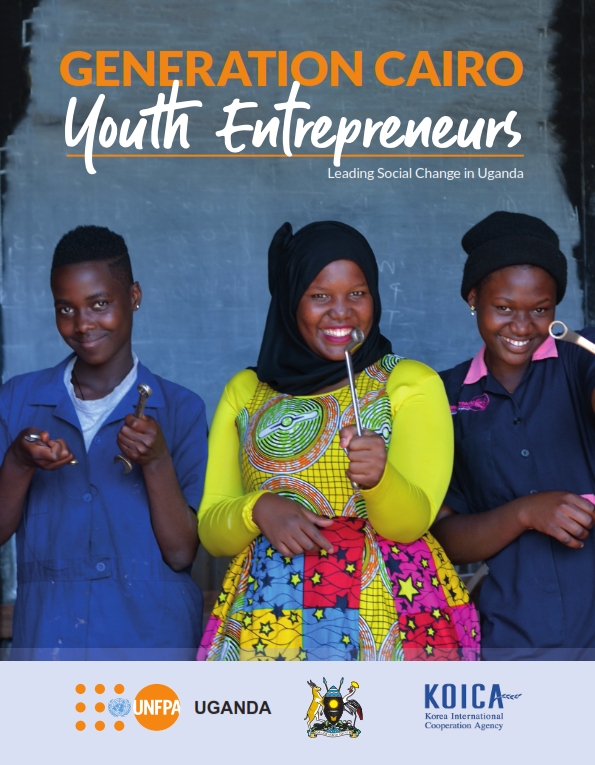
Generation Cairo: Youth Entrepreneurs leading social change in Uganda
Young people continue to demonstrate that when they are supported, they can lead the change they want to see.
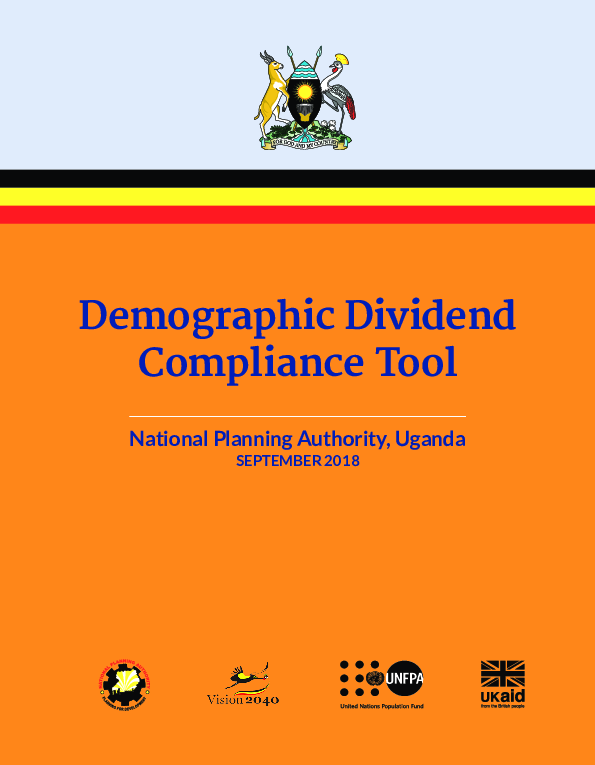
Demographic Dividend Compliance Tool
Uganda Vision 2040 identifies the strengthening of human capital development as a key catalyst for economic transformation of the country into middle income status, based on attaining a demographic dividend–the accelerated economic growth that may result from a decline in a country’s birth and death rates and the subsequent change in the age structure of the population.
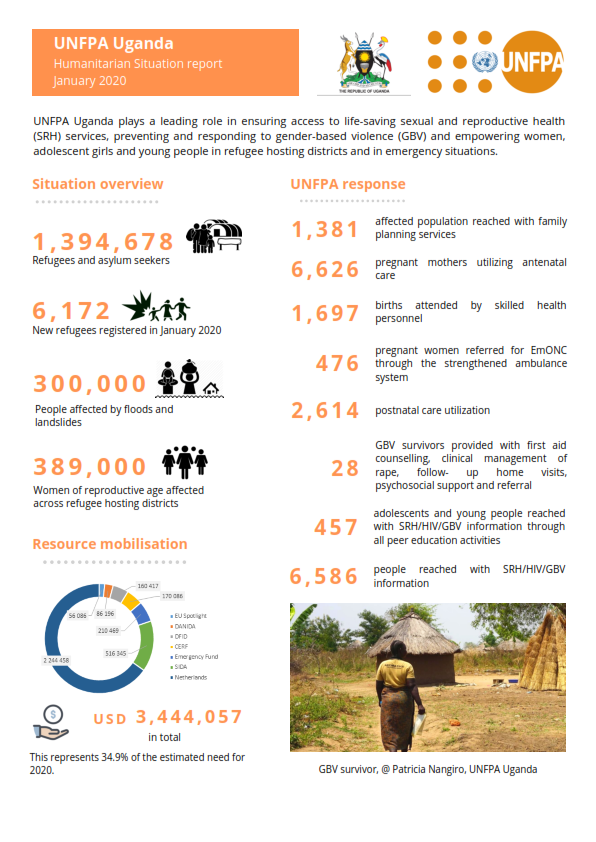
UNFPA Uganda Humanitarian Situation report January 2020 - Issue No.1
In January 2020, a total of 6,586 people were reached with SRH/HIV/GBV information
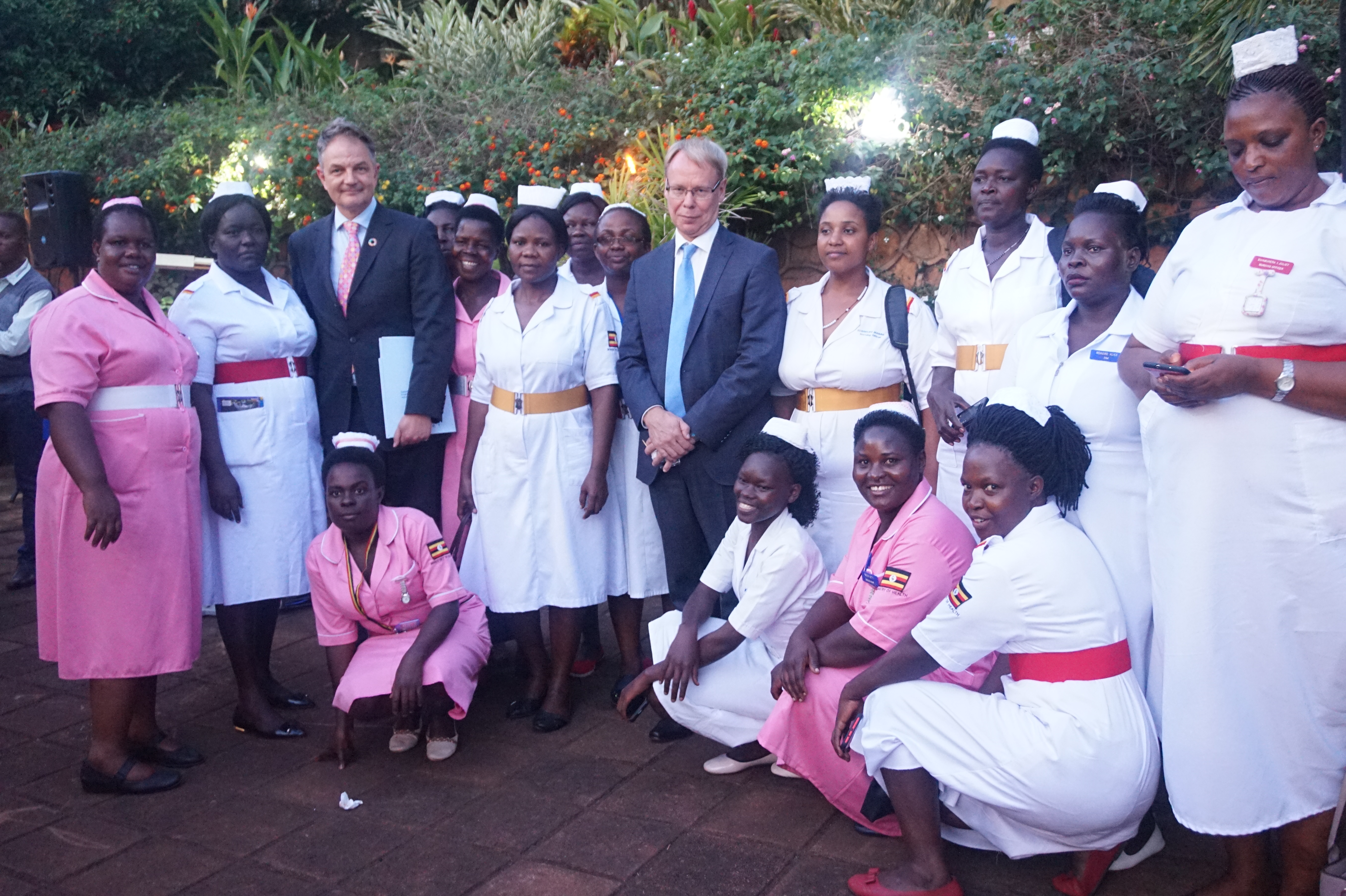
Celebrating Midwives – Sweden Recognizes Midwives in Uganda for the 5th Year
Recognizing their dedication, H.E. Lindgärde said that: “despite operating under challenging circumstances with limited resources and understaffing, midwives play a crucial role in improving Uganda’s health indicators and reducing maternal
and child mortality rates.”
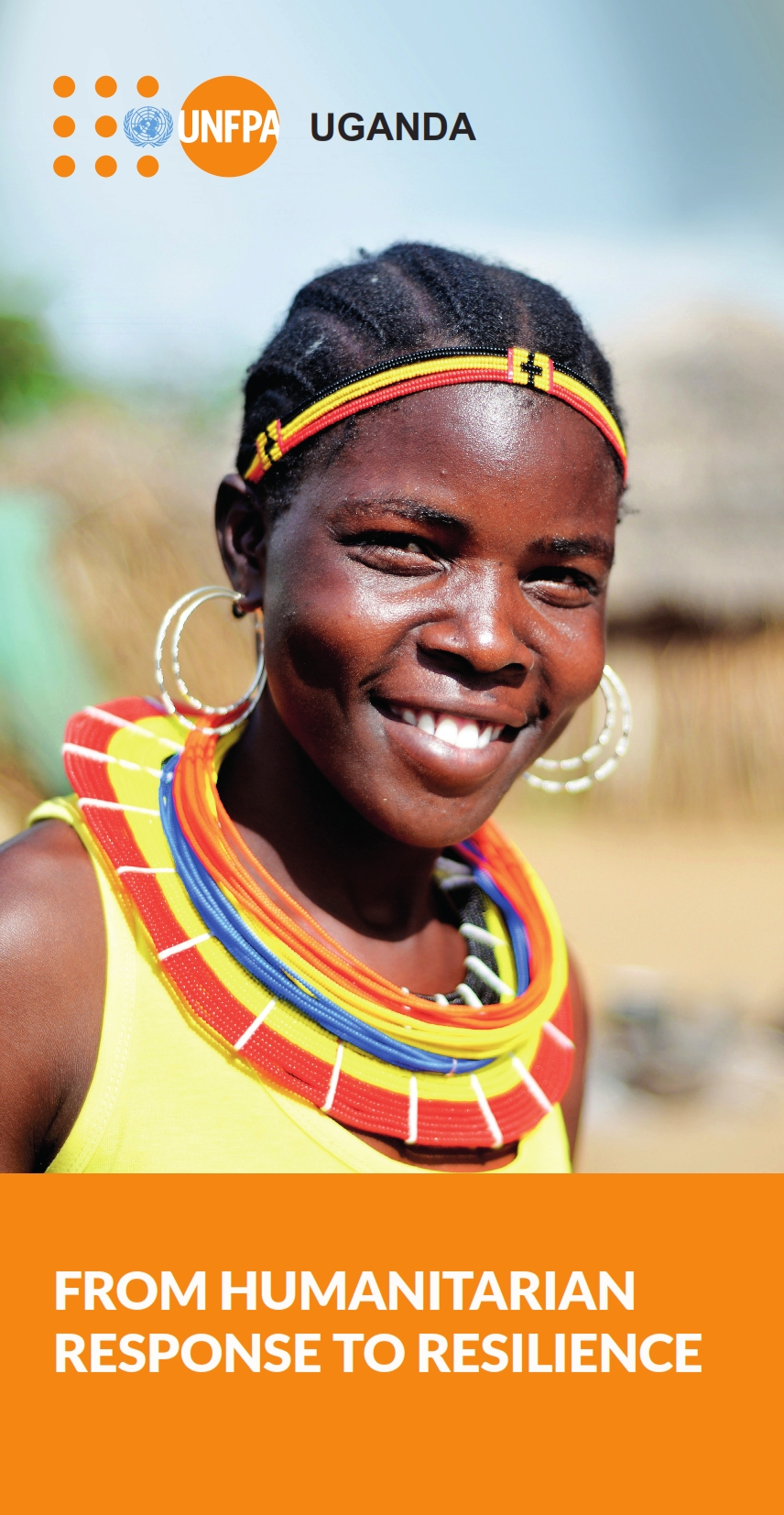
From Humanitarian Response to Resilience
Uganda is one of the top ten countries in the world that hosts the largest number of refugees. As of May 2019, the number of refugees and asylum seekers in Uganda had reached 1,276,208 more than at any time in the country’s history. Eighty six percent of the refugees are women and children below 18 years . UNFPA plays a leading role in ensuring access to life-saving sexual and reproductive health (SRH) services; preventing and responding to gender-based violence (GBV); and empowering women, adolescent girls and young people in refugee hosting districts.
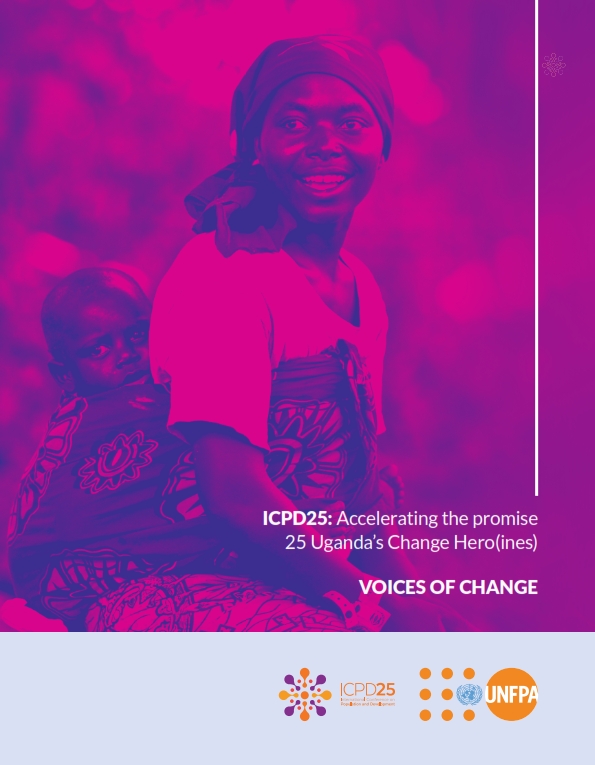
Voices of Change; ICPD25: Accelerating the promise 25 Uganda’s Change Hero(ines)
The Change Hero(ines) not only shared their experience, but also ideas on how to reinvigorate the sexual and reproductive health and rights movement, suggesting fresh solutions, and new partners to bring on board.
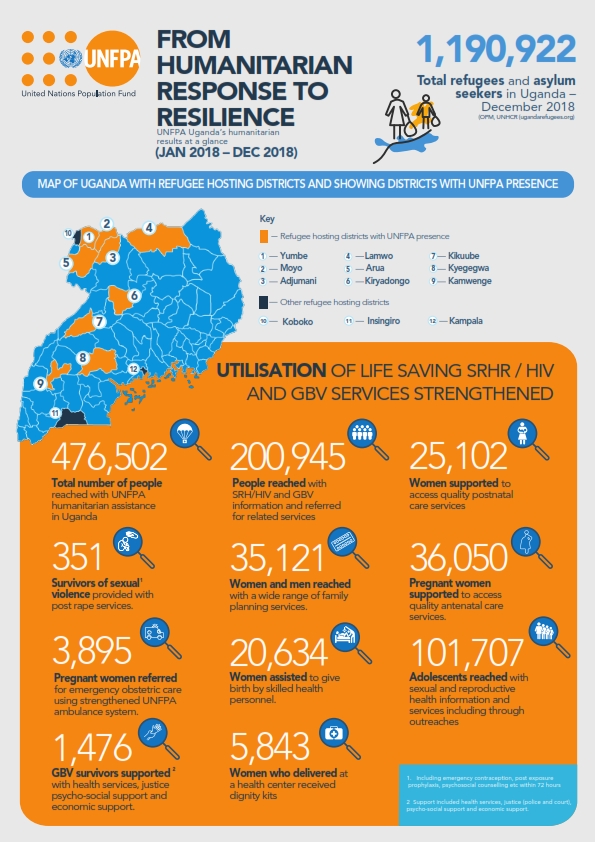
From humanitarian response to resilience: UNFPA Uganda's humanitarian results at a glance (Jan 2018-Dec 2018)
In 2018, UNFPA reached a total of 476,502 with humanitarian assistance in Uganda
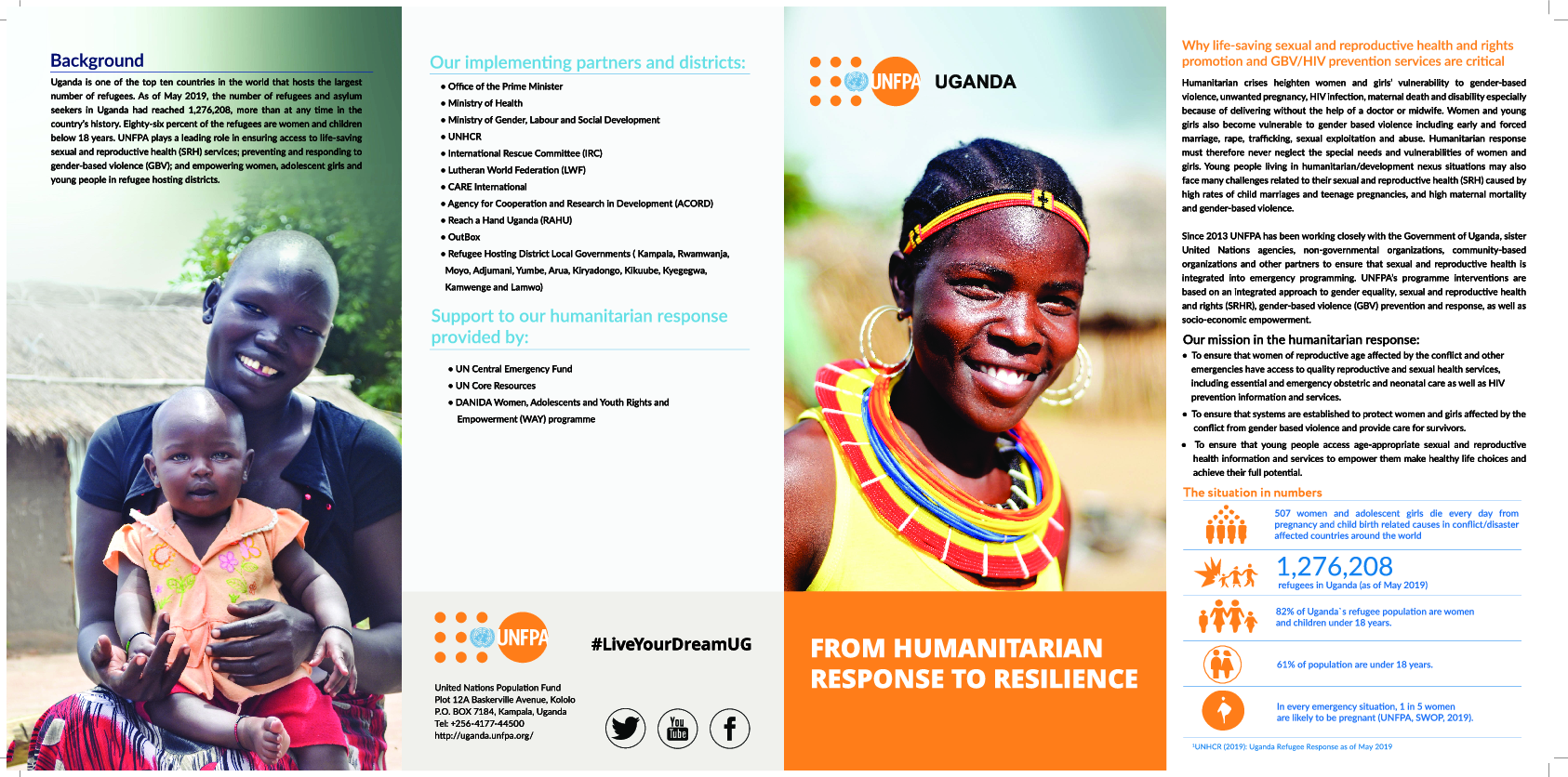
From humanitarian response to resilience
Humanitarian crises heighten women and girls’ vulnerability to gender-based violence, unwanted pregnancy, HIV infection, maternal death and disability especially as a result of delivering without the help of a doctor or midwife, early and forced marriage, rape, trafficking, sexual exploitation and abuse. Humanitarian response must therefore never neglect the special needs and vulnerabilities of women and girls. Young people living in humanitarian/development nexus situations also face many challenges related to their sexual and reproductive health (SRH) including high rates of child marriage and teenage pregnancy, high maternal mortality, and high incidences of gender-based violence.